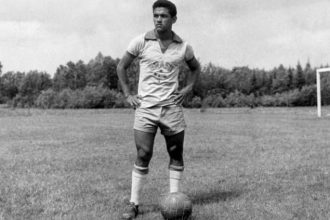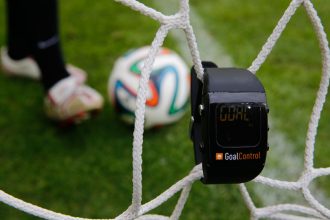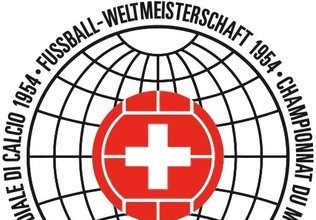The 2006 FIFA World Cup held in Germany was a remarkable event that captivated the world with its thrilling matches, incredible displays of skill, and unforgettable moments. From June 9th to July 9th, 32 teams from around the globe competed fiercely for the coveted trophy, showcasing their passion, determination, and love for the beautiful game.
The tournament was characterized by high levels of competitiveness, with teams showcasing their tactical prowess and individual brilliance. The matches were filled with intense drama, nail-biting penalties, and stunning goals that left fans in awe. The atmosphere in the stadiums was electric, with supporters from different nations coming together to celebrate the sport they adore.
Hosted by Germany, the tournament was a testament to the country’s organizational capabilities, as they successfully managed to create a vibrant and welcoming atmosphere for fans and players alike. The stadiums were world-class, the infrastructure was exceptional, and the hospitality of the German people was second to none.
Teams:
Iran, Japan, Saudi Arabia, South Korea, Angola, Ghana, Ivory Coast, Togo, Tunisia, Costa Rica, Mexico, Trinidad and Tobago, United States, Argentina, Brazil, Ecuador, Paraguay, Australia, Croatia, Czech Republic, England, France, Germany (host), Italy, Netherlands, Poland, Portugal, Serbia and Montenegro, Spain, Sweden, Switzerland, Ukraine.
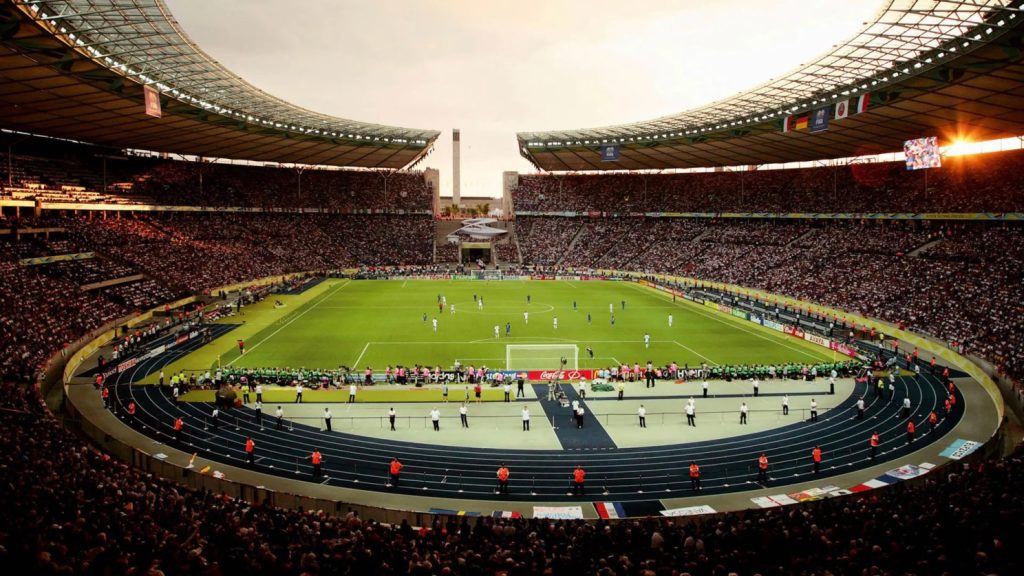
The finals tournament of the 2006 World Cup began on 9 June. The 32 teams were divided into eight groups of four teams each, within which the teams competed in a round-robin tournament to determine which two of those four teams would advance to the sixteen-team knock-out stage, which started on 24 June. In total, 64 games were played.
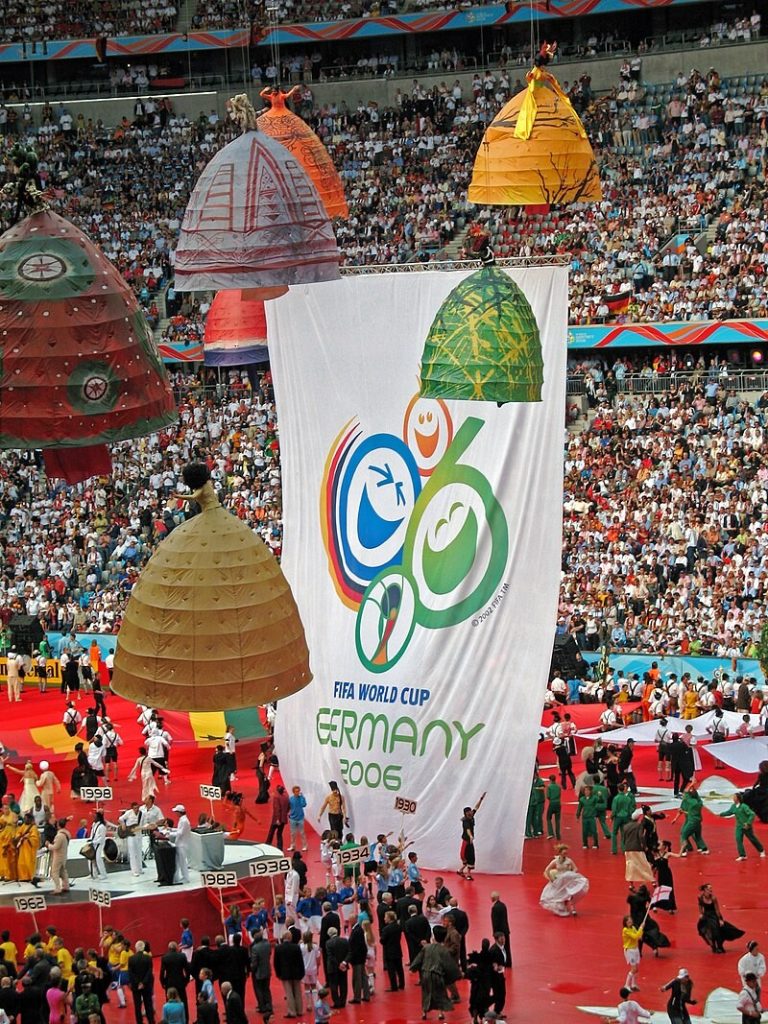
Mascot
The official mascot of this World Cup was “Goleo VI”

Match ball
The official match ball was “Teamgeist”, manufactured by Adidas.
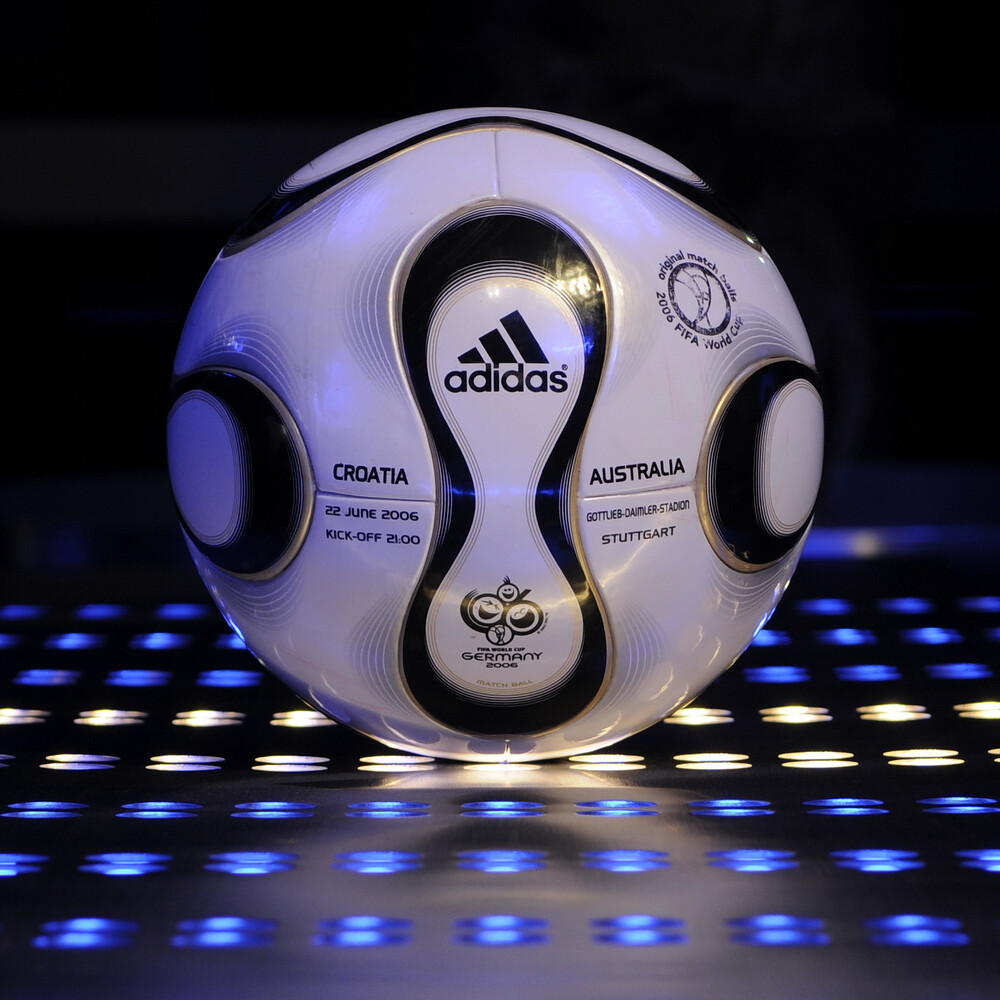
Music
The official song was “The Time of Our Lives”. The official anthem was “Zeit dass sich was dreht (Celebrate The Day).
Although Germany failed to win the Cup, the tournament was considered a great success for Germany in general. Germany also experienced a sudden increase in the patriotic spirit with flags waving, traditionally frowned upon by German society since World War II whenever the German team played. For the closing ceremonies, Matthias Keller composed a work performed simultaneously by the Munich Philharmonic Orchestra, the Bavarian State Orchestra, and the Bavarian Radio Orchestra with conductors Christian Thielemann, Zubin Mehta, and Mariss Jansons, and soloists Diana Damrau, Plácido Domingo and Lang Lang.
Despite early success by Australia, Ecuador, and Ghana, the tournament marked a return to the dominance of traditional football powers. Four years after the 2002 tournament, in which teams from North America (the United States), Africa (Senegal), and Asia (South Korea) made it deep into the knockout stages and Turkey finished third, all eight seeded teams progressed to the knockout stages and none of the quarter-finalists were from outside Europe or South America. Six former champions took part in the quarter-finals, with Ukraine and Euro 2004 runners-up Portugal as the only relative outsiders. Argentina and Brazil were eliminated in the quarter-finals, leaving an all-European final four for only the fourth time (after the 1934, 1966, and 1982 tournaments).
In this world cup, Ronaldo and Messi played for the first time in the World Cup and both managed to score.
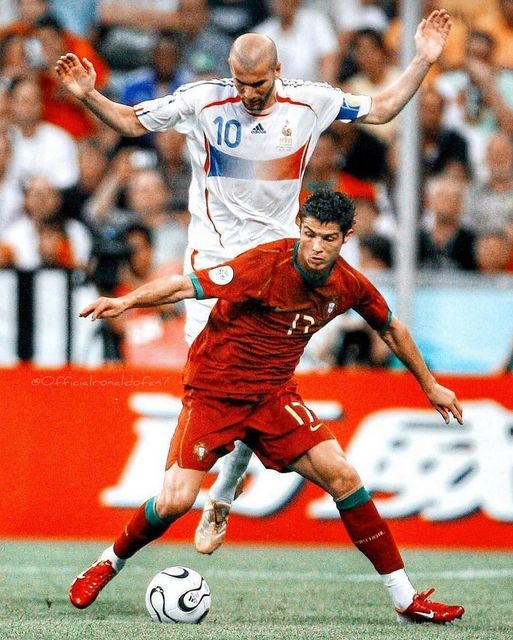
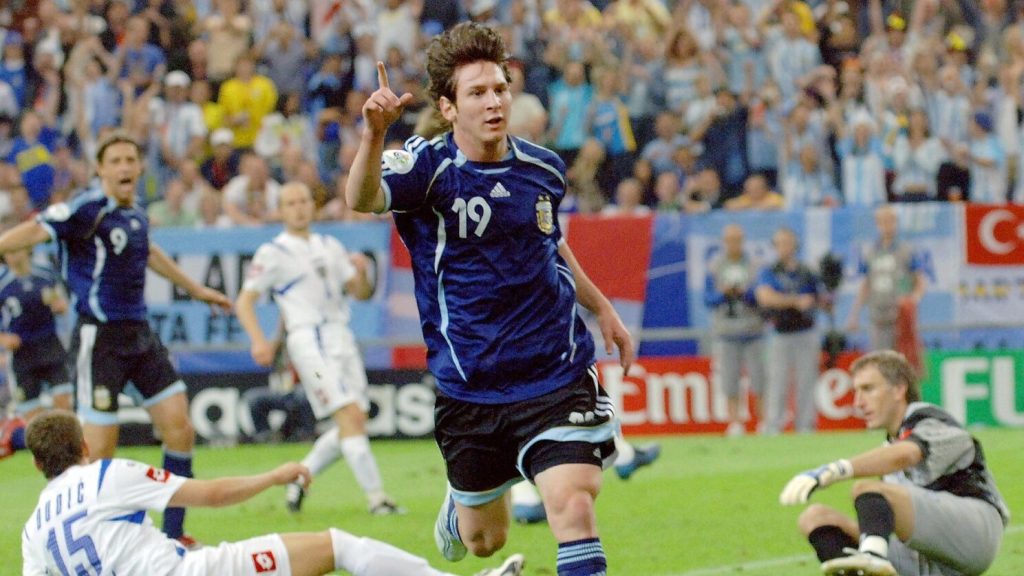
Germany’s Miroslav Klose scored five goals to claim the Golden Boot, the lowest total to win the prize since 1962. No other player scored more than three goals. No player from the winning Italian squad scored more than two goals, though ten players had scored for the team, tying France’s record in 1982 for the most goalscorers from any one team.
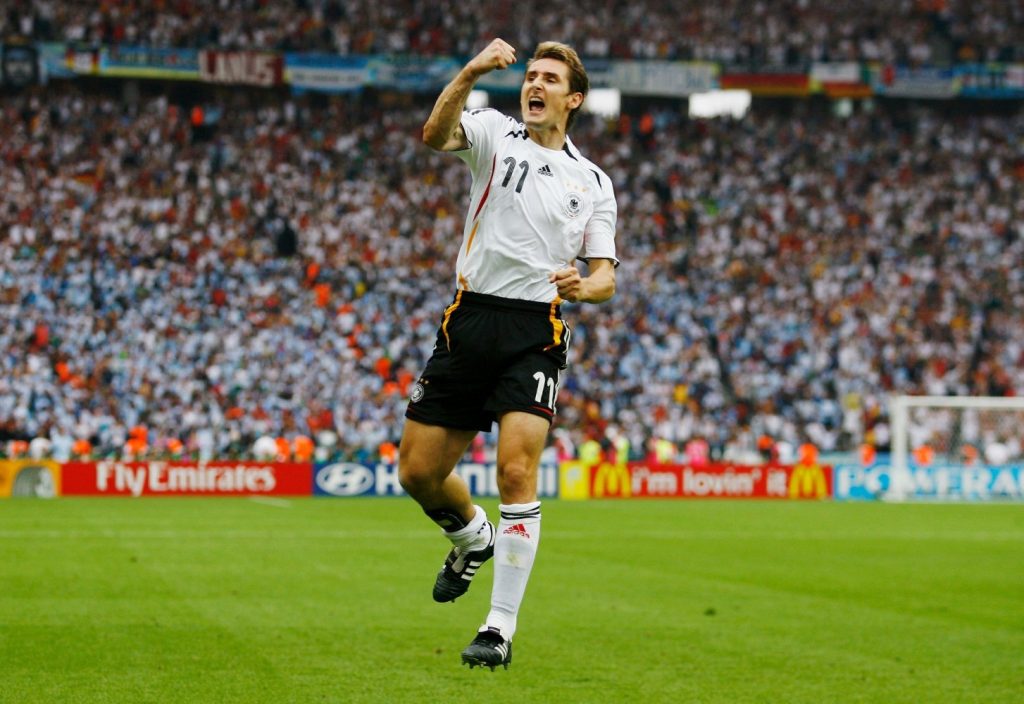
For the first time ever in the FIFA World Cup, the first and last goals of the tournament were scored by defenders. German left-back Philipp Lahm scored the opener against Costa Rica after only 5 minutes of the opening match. In the final, Italian center-back Marco Materazzi out-jumped Patrick Vieira and headed in the last goal of the 2006 World Cup. In addition, Fabio Grosso clinched the cup for Italy with the decisive spot kick in the penalty shootout.
Round of 16
In the second round, conceding two early goals in the first twelve minutes to Germany effectively ended the Swedes’ hopes of progressing to the quarter-finals. Argentina struggled to get past Mexico until a Maxi Rodríguez goal in extra time put the Albiceleste in the quarter-finals. Australia’s journey ended when the Italians were awarded a controversial penalty, scored by Francesco Totti, deep into the remaining seconds of the match. The Italians had spent much of the game with only ten men on the field, following an equally controversial red card shown to center-back Marco Materazzi. In a 0–0 match, described in The Guardian as “the dullest game in World Cup history”, Switzerland failed to convert any of their three penalties in the penalty shoot-out against Ukraine to see them exit the competition with an unwanted new record in becoming the first team in a World Cup to fail to convert any penalties in a shootout. Their elimination also meant that they became the first nation to be eliminated from the World Cup without conceding any goals (and indeed the only nation ever to participate in a World Cup finals tournament without conceding a goal). No two teams from the same group qualified for the quarters, all eight teams were from different groups.
England struggled against Ecuador but won 1–0 thanks to a David Beckham free kick. Brazil won 3–0 against Ghana, in a game which included Ronaldo’s record 15th World Cup goal. Der Spiegel reported that the match may have been influenced by an Asian betting syndicate. Portugal defeated the Netherlands 1–0. The only goal came courtesy of a Maniche strike in an acrimonious match, which marked a new World Cup record with 16 yellow cards (Portugal: 9, the Netherlands: 7) and 4 players being sent off for a second bookable offense. France came from behind to defeat Spain 3–1 thanks to goals from Franck Ribéry, Patrick Vieira, and Zinedine Zidane.
Quarter-finals
Germany and Argentina ended 1–1 after extra time; the hosts edged out the Argentinians 4–2 on penalties to go through to the semifinals (this was the first time Argentina had lost a World Cup penalty shootout: up until this match, Argentina and Germany had each participated in three penalty shootouts, winning all of them).
In Gelsenkirchen, England faced Portugal in a repeat of their Euro 2004 quarter-final. This time Wayne Rooney was sent off, and Portugal again won on penalties, 3–1 after a 0–0 draw to reach their first World Cup semi-final since the days of Eusébio 40 years earlier. This gave manager Luiz Felipe Scolari his third consecutive tournament quarter-final win over Sven-Göran Eriksson’s England, first with Brazil en route to their 2002 World Cup win, then with Portugal in 2004 and 2006.
Italy defeated quarter-final debutants Ukraine 3–0. France eliminated Brazil 1–0 to advance into the semi-finals. Brazil only managed one shot on goal, while Zinedine Zidane’s dribbling earned him Man of the Match and his free-kick to Thierry Henry resulted in the winning goal.
Semi-finals
With Argentina and Brazil eliminated in the quarter-finals, an all-European semi-final lineup was completed for only the fourth time (after the 1934, 1966, and 1982 tournaments).
The semi-final between Germany and Italy produced an extra time period that went scoreless until the 118th minute, when Italy scored twice through Fabio Grosso and Alessandro Del Piero, ending Germany’s undefeated record in Dortmund.
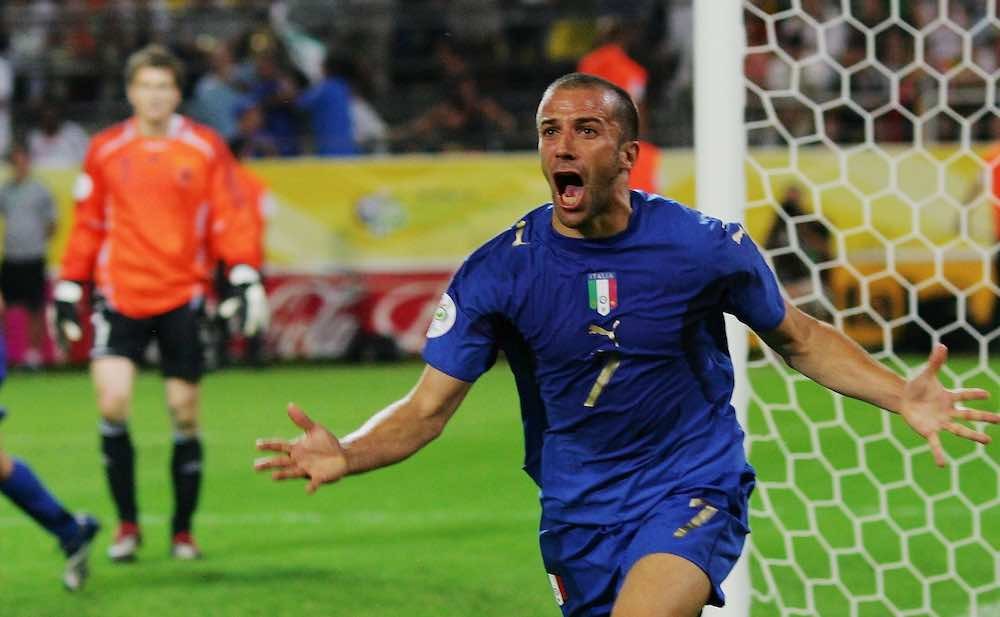
In the second semi-final, Portugal lost to France 1–0 in Munich. In a repeat of the Euro 1984 and Euro 2000 semi-finals, France defeated Portugal, with the decisive goal being a penalty scored by France captain Zinedine Zidane.
Third place play-off
The hosts got three goals in 20 minutes in the second half with the help of 21-year-old left midfielder Bastian Schweinsteiger. His first goal beat the Portuguese goalkeeper Ricardo with pace over his head. Only 4 minutes later, Schweinsteiger’s free kick 30 meters from the left of the penalty box, driven low across goal, was connected with Petit’s knee to become an own goal for Portugal. The German did not stop and netted his second goal, which swerved away to the keeper’s left, in the 78th minute.
Portugal was strong in possession but lacked punch in attack; unable to convert 57% of possession into goals. Pauleta had two clear chances from 15 meters, but both times hit tame shots that did not trouble keeper Oliver Kahn, who was playing in his last match for the German national team. Portugal got a consolation goal with the help of substitute Luís Figo (also playing the final international game of his career), who almost immediately provided the precise distribution needed to unlock the German defense. A cross from the right wing on 88 minutes found fellow substitute Nuno Gomes at the far post, who dived in for the goal. The game ended 3–1, a result which gave the tournament hosts the bronze medals and left Portugal in fourth place.
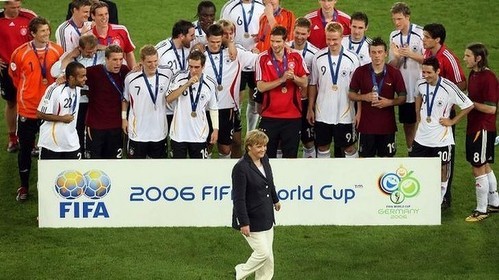
Final
The final started with each side scoring within the first 20 minutes. Zinedine Zidane opened the scoring by converting a controversial seventh-minute penalty kick, which glanced off the underside of the crossbar and bounced beyond the goal line before it spun back up, hit the crossbar again, and rebounded out of the goal. Marco Materazzi then leveled the scores in the 19th minute following an Andrea Pirlo corner. Both teams had chances to score the winning goal in normal time: Luca Toni hit the crossbar in the 35th minute for Italy (he later had a header disallowed for offside), while France was not awarded a possible second penalty in the 53rd minute when Florent Malouda went down in the box after a tackle from Gianluca Zambrotta. At the end of the regulation 90 minutes, the score was still level at 1–1, and the match went into extra time. Italian goalkeeper Gianluigi Buffon made a potentially game-saving save in extra time when he tipped a Zidane header over the crossbar. Further controversy ensued near the end of extra time when Zidane head-butted Materazzi in the chest in an off-the-ball incident and was sent off.
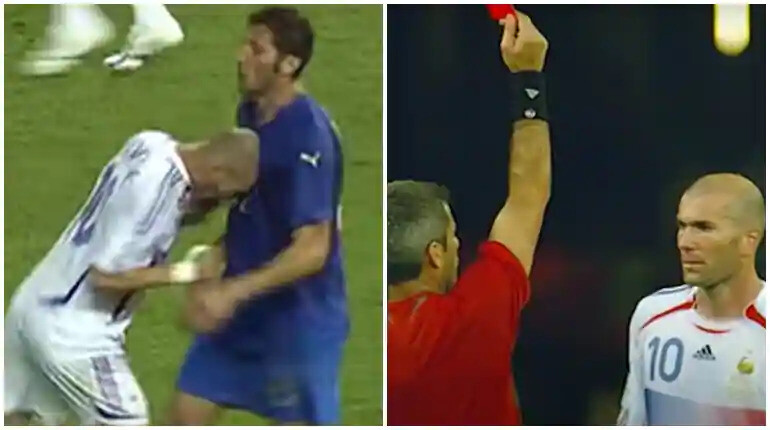
Extra time produced no further goals and a penalty shootout followed, which Italy won 5–3. France’s David Trezeguet, the man who scored the golden goal against Italy in Euro 2000, was the only player not to score his penalty; his spot kick hit the crossbar, landed on the goal line, and went out. It was the first all-European final since Italy’s triumph over West Germany in the 1982 World Cup, and the second final, after 1994, to be decided on penalties. It was also Italy’s first world title in 24 years, and their fourth overall, making them the second most successful World Cup team ever. The victory also helped Italy top the FIFA World Rankings in February 2007 for the first time since November 1993.
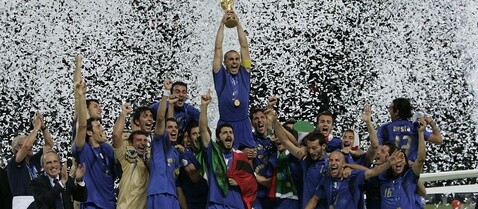
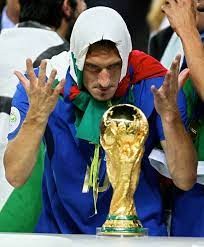
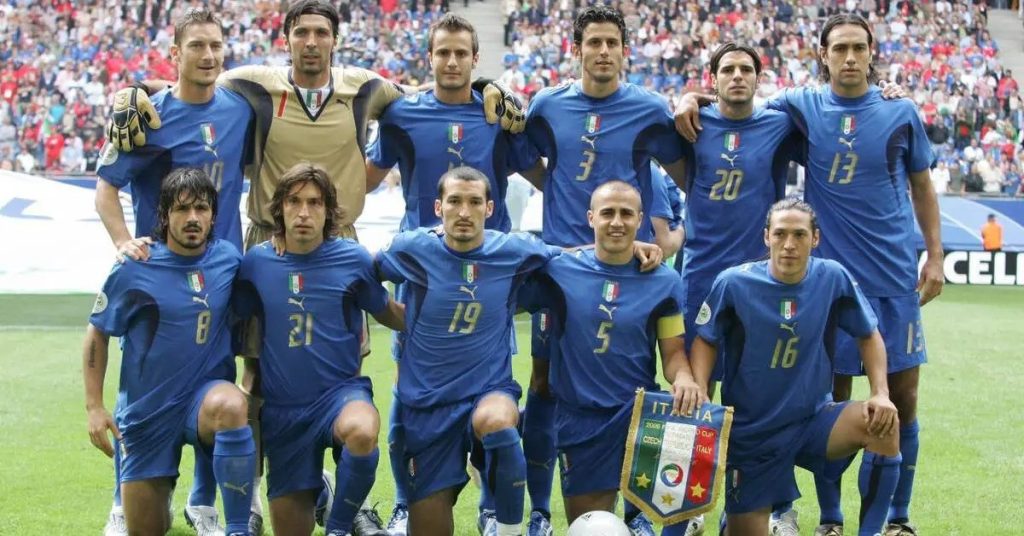
Prize money
A total of CHF332 million was awarded to the 32 teams participating in the tournament. Each team that entered the competition received CHF2 million, with the biggest prize being CHF24.5 million, awarded to the winner of the tournament. Below is a complete list of the prize money allocated:
CHF7 million – To each team eliminated in the group stage (16 teams)
CHF8.5 million – To each team eliminated in the round of 16 (8 teams)
CHF11.5 million – To each team eliminated in the quarter-finals (4 teams)
CHF21.5 million – Fourth-placed team and Third placed team
CHF22.5 million – Runners-up
CHF24.5 million – Winner
In preparation for the tournament, FIFA and the Organising Committee sought a way to accommodate people planning to visit. The experience of past World Cups and public viewing was conceptualized in 4-week-long events for football supporters to meet, board, interact, partake in cultural activities, and watch all 64 matches on giant video walls. Since 2004, the details on costs, logistics, safety issues, marketing, and broadcasting rights were jointly hammered out by FIFA and the host cities. These public viewing events, known as “Fan Fests” (German: Fanmeile), served as an idea to provide football supporters without tickets a legitimate opportunity to partake in the World Cup. Unlike the past tournaments where ticketless fans were treated as security risks, the World Cup in Germany welcomed all supporters, thus generating a positive atmosphere even before the tournament began. Even though security planners and media were skeptical and cautious on the matter of public viewing, the skepticism was cast aside with the beginning of the World Cup.
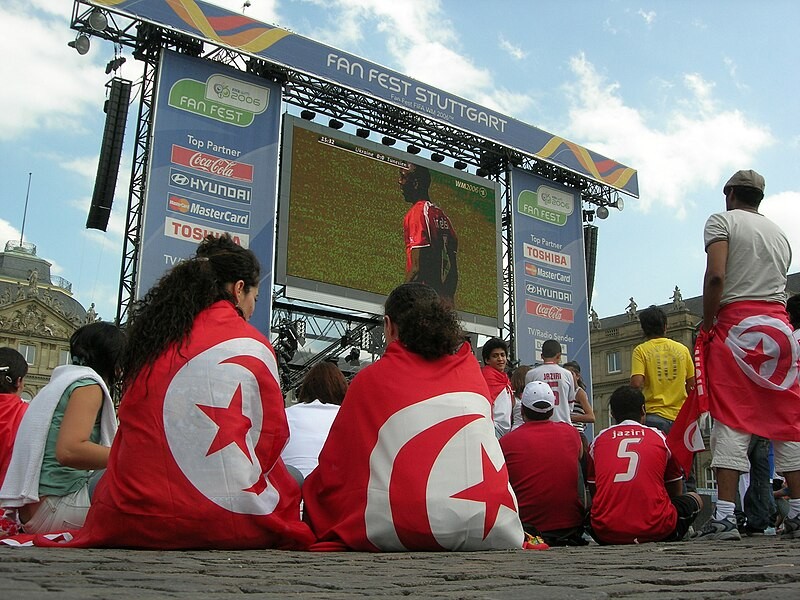
the 2006 FIFA World Cup in Germany was a spectacle that will forever be remembered. It showcased the best of football, from thrilling matches to unforgettable moments. It united nations, celebrated diversity, and left a lasting legacy in the hearts of football fans worldwide. The tournament will always hold a special place in the annals of football history, serving as a reminder of the beauty and magic of the beautiful game.


